How to keep bugs out of your home.
Insects and other pests have a way of invading your house throughout the year. Here’s how to prevent bugs from coming into your home.
1. Fix leaks and reduce standing water. Dripping faucets, leaks under sinks or in the walls, and even pooled water in the yard are all basically homing beacons for bugs. Keep insects from seeking out these damp areas in your home and lawn by plugging up any water leaks, turning containers that catch rain water upside down, repairing leaks in the roof (or replacing your roof entirely if needed), and promptly fixing those incessant faucet drips. If you’re not sure how to properly address a leak, contact your local plumber or handyman.
2. Seal up your home. If insects want in, they first have to find their entry points. Inspect your home for cracks and holes around door frames and windows, identify and replace any rotten fascia boards and check for damaged weather stripping. When you find a weak spot, invest in new weather stripping and caulk for a DIY fix (or hire a pro who can do this for you).
3. Clean up. Keep kitchen surfaces and floors wiped down, swept up and crumb-free to avoid attracting ants, flies and other critters.
Related: 25 things in your home you (probably) forgot to clean.
4. Declutter. Spend time decluttering low-traffic spaces like attics, garage storage areas and basements. Stacks of old newspapers and magazines, bags of clothes and other junk are the perfect places for pests and insects to hide.
5. Stay on top of lawn, garden and tree care. Trim trees so that the branches don’t touch your home’s exterior or roof. Collect leaves around your home, and clean out your gutters regularly — especially after a storm.
6. Take out the trash. Garbage attracts all sorts of disgusting critters and bugs. Take out your trash promptly, and place it in an outdoor garbage can with a secure lid.
7. Pay attention to your bed. Frequently wash your bedding, sheets and pillowcases when faced with a potential bed bug, flea or dust mite issue. For bed bugs in particular, be sure to inspect your mattress and box springs, too.
8. Store away all food (including pet food). Practice good habits by always making sure your cereal boxes, jars and food containers are sealed and stored away properly. And if you have pets, make sure you always put away uneaten dog or cat food — never leave it sitting out all day and night.
9. Inspect your pets’ fur. Make sure your pets receive any flea and tick care or prevention they might need. During flea and tick season, examine your pets’ fur for scratching, scabs, red skin and other signs of these annoying pests.
10. Stay vigilant. Throughout the year, keep a lookout for signs of a possible insect infestation. These signs may include insect droppings, bites on your skin, holes in the walls and floors and scurrying, scratching sounds. If you notice anything out of the ordinary, it’s time to act by trying a DIY method or hiring a local pest control service.
Pest control tips for common house bugs.
If insects get in despite your best efforts to keep them out, don’t stress. There are several tried-and-true ways to exterminate insects on your own before you’re staring down a full-fledged infestation.
For example, you may want to consider treating your space for cockroaches, spiders and even bed bugs with a non-poisonous option like diatomaceous earth, which can be dusted along baseboards and behind appliances. Always make sure to follow the instructions on the label of this product.
Here are more tips for preventing other types of pests from invading your house:
Disease spreaders: cockroaches and flies.
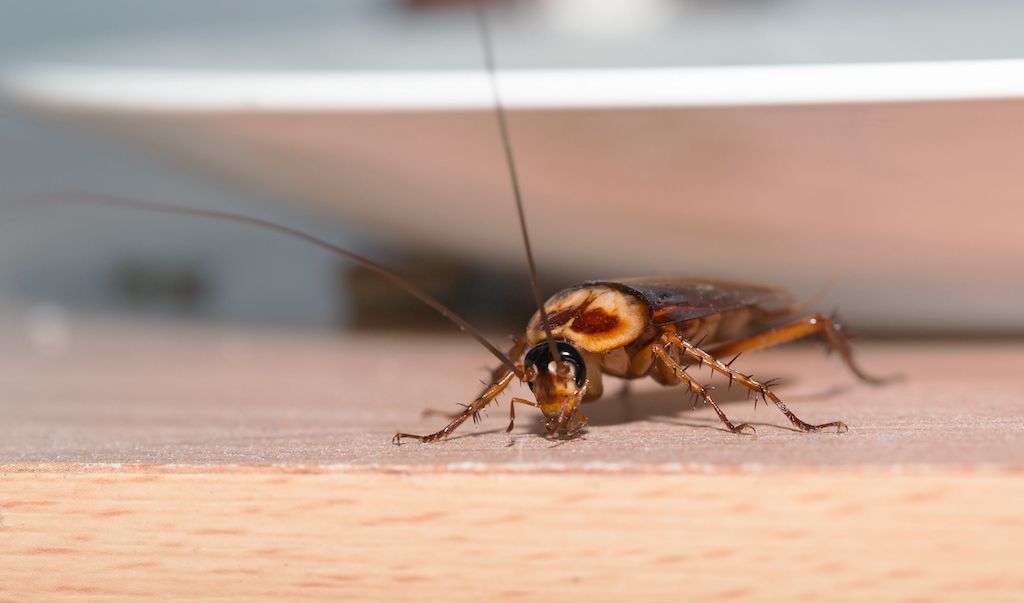
Cockroaches and flies can infect the food you eat with bacteria, producing illnesses like E. Coli, listeria and salmonella. For a chemical-free way to get rid of them, a nifty flyswatter or bug zapper will do. You should also inspect your weather stripping and window screens for any needed repairs. Set out traps or bait poison in strategic spots in your home — out of reach from pets or toddlers — to take care of a cockroach problem before it gets out of hand. And always, always, seal your food and clean up every spill and crumb.
Stinging and biting insects: fleas, mosquitoes, ants, spiders and bees.
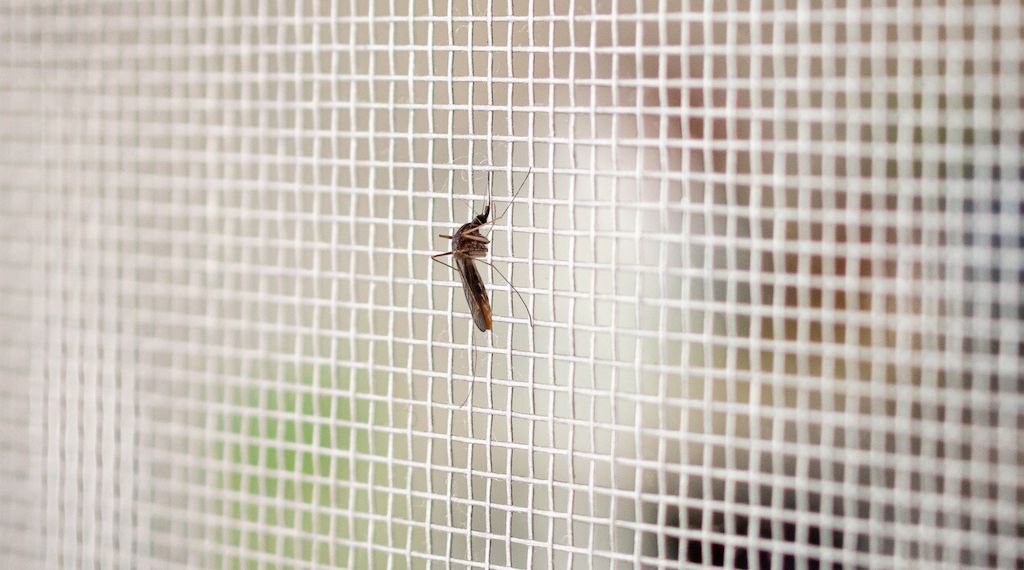
The same preventative measures you use to get rid of cockroaches and flies can go a long way with bees, mosquitoes, ants and other stinging insects. In addition, keep your garbage cans with remnants of sugary drinks firmly closed. Prevent these insects from coming inside by caulking around windows and doors — and invest in wire screens.
By using over-the-counter treatments on outdoor ant mounds, you can stop ants from coming in and crawling around until they find your kitchen. Go the extra step when you’re cleaning your home by using a white vinegar and water solution, which can help repel ants.
Eliminating standing water in your yard and house can also prevent mosquitoes from reproducing. You can also consider planting mosquito-repelling plants, like citronella, lavender, marigolds and geraniums.
Fleas are difficult to eradicate. Treat your animals for fleas, and ask a professional before buying a home fogger.
Bathroom dwellers: centipedes, earwigs and silverfish.
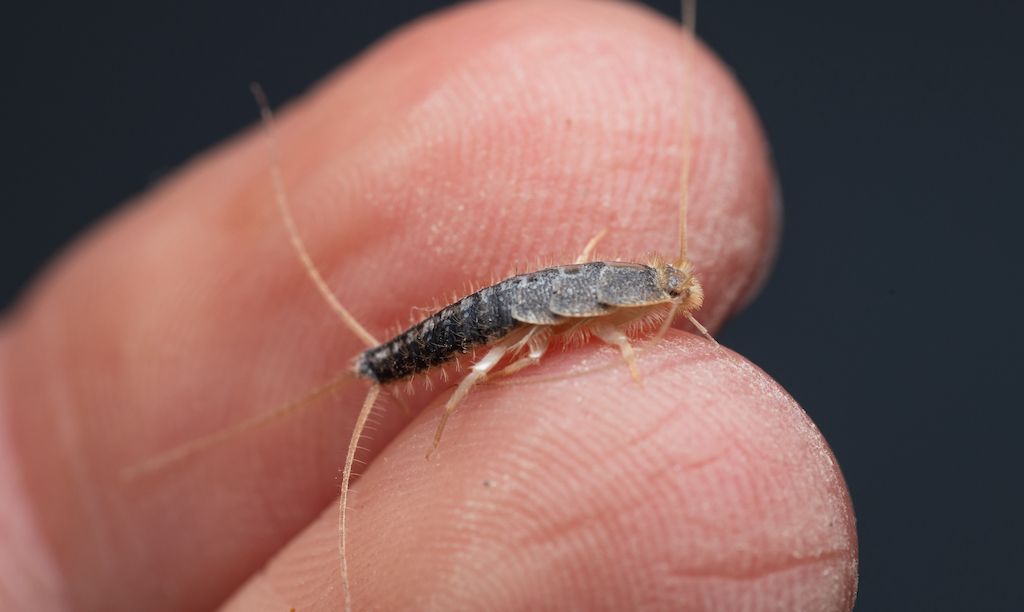
These critters often enjoy damp, humid, cool and dark areas, which often leads them to their moisture mecca: your bathroom. They also like to make appearances in basements, crawl spaces and attics. Having these insects scurrying around the bathroom or basement is quite unsettling. Plus, silverfish can cause damage to your home by chewing up household items like books and fabrics.
Prevention and natural pest control remedies for these creatures include:
- cleaning up your yard
- sealing cracks and crevices with steel wool or caulk
- avoid creating piles of firewood, leaves and mulch near your home
- trimming trees and shrubs
- investing in a dehumidifier
- using bug tape and sticky traps
If none of these remedies work and you find yourself outnumbered, call your local pest control company for help.
Destructive pests: termites, bed bugs and carpenter ants.
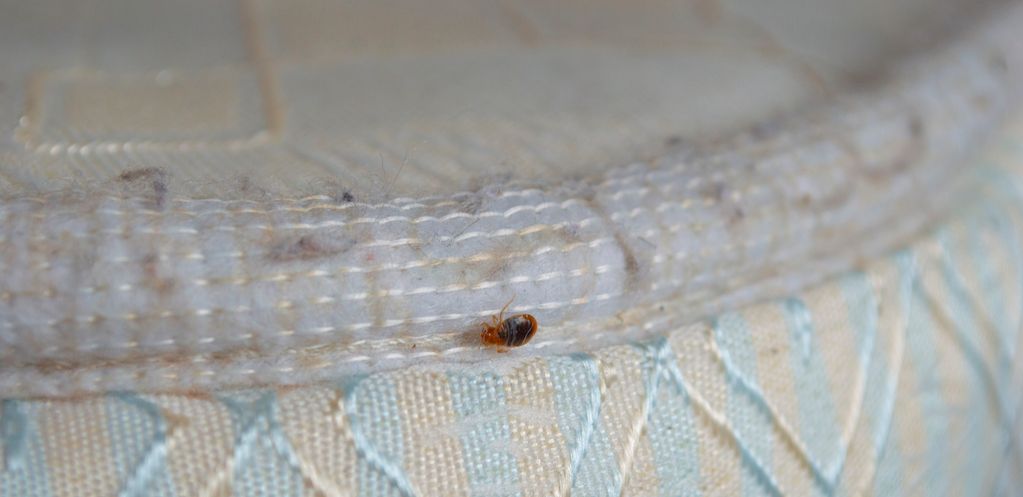
The presence of termites and bed bugs should not be tolerated for any length of time once discovered.
The best way to eradicate these bugs from your home is to call a professional immediately. Bed bugs and termite infestations can get out of hand quickly, be incredibly difficult to get rid of — and end up costing hundreds or even thousands of dollars, depending on the severity and damage).
If you identify large, dark ants, it's very possible you’re seeing carpenter ants, which burrow into the wood to lay eggs, causing structural damage.
Calling a trusted pest control company right away is your best plan of action. If you’re concerned about harmful chemicals being used in your home, ask your pro if they have any chemical-free treatment plans.
Seasonal pest prevention tips to remember.
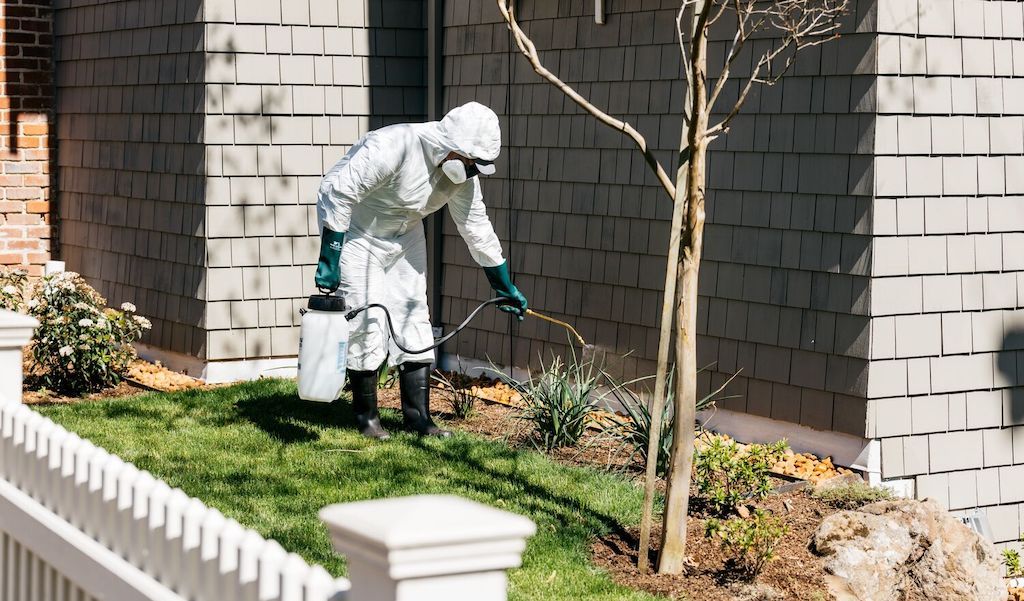
Depending on where you live, its climate and other factors, your home may be more at risk during certain times of the year. Here are some best ways to keep insects away from your house in the spring, summer, winter and fall.
Spring.
Spring can be a very active time of year. When it comes to spring cleaning around your home, make sure you hit these specific spots to keep bugs out.
- Clear out gutters and inspect your roof for leaks. Water leaks help termites, roaches, earwigs and centipedes feel quite welcome in your home.
- Clean out the pantry. Throw out any old, stale food and baking goods, and inspect for signs of ants, silverfish and cockroaches. Pull everything out and wipe down all the shelves.
- Throw away clutter. Deter insects and other pests from nesting in your home by getting rid of piles of clothes, books, magazines, newspapers and other junk you really don’t need.
- Trim back shrubs and ornamental trees close to the house. Clean up flower beds and re-mulch, making sure the mulch is over a foot away from the foundation of the house. If they’re allowed, termites will infest mulch while looking for any entry point into your home.
Summer.
Warm, humid weather can spell big trouble when it comes to mosquitos, ticks, flies, bees and other pests. Keep bugs out all summer by following these tips.
- Turn on a dehumidifier in the basement and bathroom to keep hot, muggy weather from attracting bugs into your home.
- Clean up after your summer BBQs. Spilled food and sugary drinks can attract bees, mosquitoes and ants.
- Eliminate standing water in your yard and garden to avoid attracting mosquitoes and bees.
- Keep screenless windows shut to avoid flies, bees and mosquitoes from buzzing in. Having a porch fan blowing when people are frequently going in and out will also keep mosquitoes away.
- When returning home from vacation, change your clothes and wash them on high heat before sitting down on the couch. Never put your suitcase on your bed, and avoid putting your bags on the carpet before cleaning them out as well. Bed bugs are expert travelers and can hide in pockets or on your clothing to hitch a ride back to your home.
- Use bug sprays or bug repelling soap when you’re going to be outside for a while to avoid potentially harmful mosquito and tick bites.
Fall.
During the fall months, do a little bit of pest prevention to prepare for a winter infestation. For example:
- Trim back trees and bushes near the house so that little crawlers don’t use them to get up near your roof.
- Replace any damaged weather stripping around windows and doors, and seal any cracks and crevices with caulk. The winter chill can cause many critters to look for a warm place during the long, cold months.
- Keep your gutters free of leaves and debris as the leaves fall. Clogged gutters are the perfect habitat for mosquitoes and bees — and even rodents and birds.
Winter.
As the cold weather blows in and the days get shorter, you may find yourself home more often. Use this time to clean out a few areas where pests may seek winter shelter.
- Clear out clutter from the basement, attic or garage. Cockroaches and spiders love a good, quiet corner in disarray.
- Keep your firewood pile at least 20 feet from the house. This will help prevent termites and other bugs from getting too close to your home’s weak spots.
- Cover pipes and outdoor spigots to avoid frozen pipes that could cause a leak and attract pests.
If you see a bug in your home, identify it and use all the above DIY tips and tricks to get that critter and its family members out of your home. If that doesn't work in a reasonable amount of time, call back up. Whether you’re dealing with ants, termites, bedbugs, cockroaches, mosquitoes or earwigs, hire a local professional on Thumbtack to rid your home of these unwelcome houseguests.
FAQs
How do I get rid of bugs in my house naturally?
There are several avenues you can take to get rid of bugs and insects without resorting to chemicals. For example:
If you have a severe infestation, consider calling in a pro.
What smell will keep bugs away?
There are plenty of smells that deter bugs, and some of them can be found in your own kitchen. For example, cinnamon, fresh mint, coffee grounds, vinegar and ground black or red pepper have been known to keep ants away. Peppermint is touted as a scent that can repel spiders, mosquitoes and ants.
What can I spray around my house to keep bugs out?
Some homeowners prefer to spray a diluted vinegar solution around their house (specifically, around the window frames) to keep bugs out of their house. If you call a pest control company, they will likely use an insecticide or pesticide around your home to repel bugs and protect your plants.